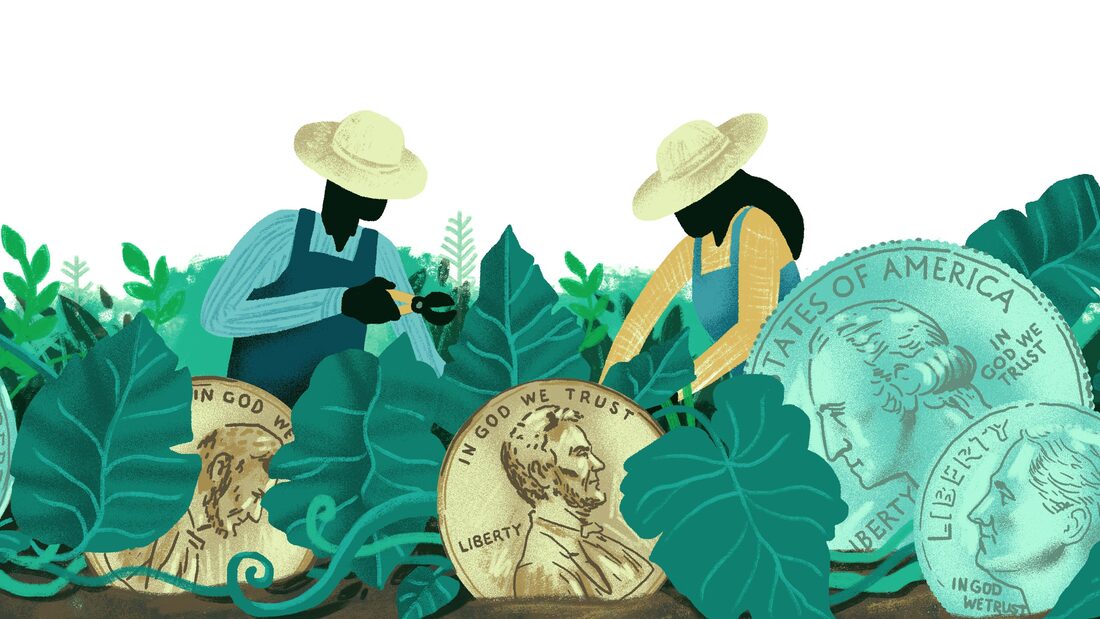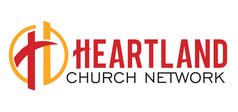|
Illustration by Matt Chinworth In the last two weeks, I have discussed five stewardship principles that we can find in the Parable of the Talents (Matt. 25-30). They were:
As I have suggested before, stewardship is learning to care for all our God-given resources. What we tend to do is take our eyes off of our daily responsibilities, and we begin to focus on building personal wealth for our future. As we read the Bible, including the Parable of Talents and the 10 Commandments (Exodus 20:5b-6), we consistently hear that if we follow God’s ways TODAY we will receive His blessings in the FUTURE, and if we reject His ways, we will bring trouble upon ourselves and those we love. If we live obediently, God will fulfill ALL His promises. Said another way, if we have stewarded well our soul, time, and talents then our obedience will be rewarded. We see this promise of blessing and warnings against disobedience in a most profound way when the people of Israel first entered the Promised Land. In Joshua 8, we read how the people fulfilled a command that God had given them through Moses long before they crossed the Jordan River. In Deuteronomy 11:13-17 and 26-29 God told Moses: And it shall be that if you earnestly obey My commandments which I command you today, to love the Lord your God and serve Him with all your heart and with all your soul, then I will give you the rain for your land in its season, the early rain and the latter rain, that you may gather in your grain, your new wine, and your oil. And I will send grass in your fields for your livestock, that you may eat and be filled. Take heed to yourselves, lest your heart be deceived, and you turn aside and serve other gods and worship them, lest the Lord’s anger be aroused against you, and He shut up the heavens so that there be no rain, and the land yield no produce, and you perish quickly from the good land which the Lord is giving you. In Deuteronomy 27-28, this command was again given to Moses to pass along to the people. This time it came with further details as to how it was to be done. After the People of Israel crossed the Jordan; set up memorial stones commemorating God’s intercession; circumcised all males; won the battle for Jericho, and then lost, rectified the sin issue, and then won the battle for Ai, Joshua called the people to fulfill Moses’ command: Now Joshua built an altar to the Lord God of Israel in Mount Ebal, as Moses the servant of the Lord had commanded the children of Israel, as it is written in the Book of the Law of Moses: “an altar of whole stones over which no man has wielded an iron tool.” And they offered on it burnt offerings to the Lord, and sacrificed peace offerings. And there, in the presence of the children of Israel, he wrote on the stones a copy of the Law of Moses, which he had written. Then all Israel, with their elders and officers and judges, stood on either side of the ark before the priests, the Levites, who bore the ark of the covenant of the Lord, the stranger as well as he who was born among them. Half of them were in front of Mount Gerizim and half of them in front of Mount Ebal, as Moses the servant of the Lord had commanded before, that they should bless the people of Israel. And afterward, he read all the words of the law, the blessings and the cursings, according to all that is written in the Book of the Law. There was not a word of all that Moses had commanded which Joshua did not read before all the assembly of Israel, with the women, the little ones, and the strangers who were living among them (Joshua 8:30-35). Unfortunately, as we continue to read in Joshua and Judges we discover that too many of the Israelites sought only the blessings of God without demonstrating a willingness to follow God’s commands. And equally unfortunate, is that human nature has not changed. We, also, seek the blessings without a consistent desire to follow Godly principles with child-like faith and obedience. Yes, daily obedience is hard! But that’s why God gave us the Holy Spirit to indwell our hearts and to lead us into paths of righteousness.
We also need to acknowledge that even with good intentions and our best efforts, sometimes the promised blessings do not immediately flow. The health and wealth gospel, which has filled and corrupted the theological airways, is telling us a half-truth. They fail to point to Biblical passages that give us “the rest of the story.” In day-to-day life, like in English grammar, there are always exceptions to every rule. And in other ways, life is like a higher-level college class where there are pre-requisites. As Phyllis and I do our morning devotional time, we regularly pray for several people/families who are in our network of friends whose lives are currently filled with significant “challenges.” They are individuals who are genuinely seeking to serve God, but they are not currently feeling the love of God in a way that manifests itself in physical, relational, and emotional blessings. We both know, from hindsight, that God’s love WAS THERE for us in the deep and dark valleys of life when our emotions and anxieties overwhelmed us. In fact, His grace and love were the very things that sustained us in the midst of those “fiery furnace” experiences. The wealth of His care for us is not manifest daily, but it is always there as he gives us a future and a hope (Jer. 29:11). How do we intellectually, theologically, and emotionally come to grips with the reality that there will be difficult valley experiences in life, no matter how good a steward we are? How do we keep our focus on stewarding well all that God has given us when the blessings are not flowing like we need them to flow, or should I say we want them to flow? How do we learn to live life to the fullest without being overwhelmed with the needs we know we will face tomorrow, or should I say we think we will face tomorrow? How do we learn to value the things that God values? We will begin to look at these questions, and a few more in the days ahead. Yours in Christ, Mark R. Elliott
0 Comments
Last week I suggested three stewardship principles that are expressed in the Parable of Talents (Matt. 25:14-30). They were:
The reward for being an effective steward is that we are usually given MORE to steward. That happened with the servant who was given five and the one given two talents as they both heard from their lord, “You were faithful over a few things, I will make you ruler over many things.” This reality has led to an unwritten, but well-known organizational principle: if you want something done, ask a busy person to do it. They are the people who are either stewarding well their talents, are overachievers, or are workaholics. Experience has also told us that you don’t ask someone who is simply a “bystander”—kind of like the servant who was given a single talent. The average church in America needs to do a better job of identifying the hungry, humble, and teachable novices in its midst, and then begin to equip and release them—that’s biblical disciple-making. It takes longer in the short run, but over time it has always been proven to be the best. That’s helping someone steward their soul and their talents well. There is an interesting observation I have made regarding those who seem to have an abundance of talents. Those who are born with the most “natural ability” can too easily depend on their personal skill set and miss out on the additional blessings God is willing to provide. The reality is that no matter how gifted we are, we can do nothing of eternal significance without God (John 15:5). God uses us based on our availability (obedience) more than on our natural ability. The “least among us” are often better used by God. Moses was not able to be used by God to free His people when he was a prince of Egypt, but God was able to use him when he was herding his father-in-law's livestock on the backside of the wilderness I will extend a brief warning at this point. You don’t have to wait until all the resources arrive before you get started. If God has shown you what to do, then be obedient with what He has already placed in your hands! God will always provide what you need, when you need it if you are seeking to accomplish what He has called you to do. Now if it’s your personal agenda and for your personal pleasure, then don’t wait on God for help. Fifth, poor stewardship brings limitations (Matthew 25:26-28). The man who buried his talent heard this from his lord, “You wicked and lazy servant, you knew that I reap where I have not sown, and gather where I have not scattered seed. So you ought to have deposited my money with the bankers, and at my coming, I would have received back my own with interest. So take the talent from him, and give it to him who has ten talents. For to everyone who has, more will be given, and he will have abundance; but from him who does not have, even what he has will be taken away.” We always need to keep in mind that in this parable Jesus pointed out that the master distributed his talents to each of his servants according to their unique God given ability (vs 15). Because God blesses each of us differently, equal outcomes cannot and are not the measure of success. The parable indicates that we are evaluated based upon our effort—and the servant who was given a single talent was simply described as “lazy.” I’ve used a bit of a crude, but hopefully memorable, way of stating this principle: “God ain’t dumb! If you haven’t taken care of what He has already given you, why on earth would He want to give you more? Probably the statement that gives us the greatest pause is when the master says, “Take the talent from him (the servant given a single talent), and give it to him who has ten talents.” Our culture and government have adopted the “Robin Hood” mindset where we believe that it is ALWAYS right to take from the rich and give to the poor. When we do so without pausing to ask, “Are the poor fulfilling their stewardship responsibilities?” we are ignoring stewardship 101 lessons, and our actions are potentially going against the expressed will of God. I will come back to the question, “How can we provide for the genuine needs of those around us?” when we discuss the third parable in Matthew 25. But before we do that, I need to finish our stewardship discussion by pointing to a sixth principle: we are expected to steward well our financial wealth. However, space limitations require that I address the difference between building wealth and stewarding our wealth next week. Until then, remember to…
Yours in Christ, Mark R. Elliott |
AuthorRetired in April 2022, Mark R. Elliott served as a Director of Missions (Associational Mission Strategist) in Western Iowa and Eastern Nebraska for almost three decades. He is a strong advocate for obedience and Biblically based disciple making. As such, he knows that making healthy disciples requires Christian leaders to be constantly pursuing spiritual maturity—be lifelong learners. Because of the time constraints of ministry, most pastors focus their reading list on resources that assist them in teaching and preaching the Word of God. As such, books focusing on church health, leadership development, and church growth tend to find their way to the bottom of the stack. With that reality in mind, Mark has written discussion summaries on several books that have helped him to personally grow in Christ and that tend to find themselves on the bottom of most pastor’s stack. Many pastors have found them helpful as they are able to more quickly process great insights from other pastors and authors. Archives
April 2022
Categories |
Looking for something? |
© COPYRIGHT 2024. ALL RIGHTS RESERVED.
|




 RSS Feed
RSS Feed
